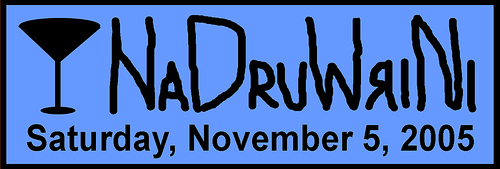Richard Nash has returned from Frankfurt and he’s now blogging up a storm. Perhaps his most interesting entry is this exchange between Nash and the Association of American Publishers over the Google Library Project lawsuit. (Background reading on the subject can be found here.) What’s particularly interesting is that the AAP’s litigious ardor stems from its representative government. Further, other AAP members (say, smaller presses) don’t seem to factor into the Board’s decision. The unnamed representative at the AAP writes:
As you know, AAP has a Board of Directors that is elected by our members and empowered by AAP’s bylaws to make decisions and take actions on behalf of the entire AAP membership. Quite often, issues that eventually come before the Board for decisions and actions are initially explored and considered by one or more of AAP’s committees and divisions. AAP staff routinely work to facilitate participation in these committees and divisions by all interested members, and members are always encouraged to contact AAP staff to make known their interests, concerns and views on relevant matters.
I tried hunting around the AAP site to see if I could locate a copy of these bylaws. Given that the publishing industry is a mighty and multifarious zoo populated by animals of different stripes, I figured (perhaps naively) that any large organization might have some exigencies for allowing minority opinions (such as Nash’s) to be voiced and considered, if not outright memorialized before the Board. Alas, no such luck.
However, I did locate this list of the Board of Directors. And I’m not certain if the Board’s current makeup genuinely reflects the industry as a whole. Sure, we have the big behemoths (with Houghton Mifflin as chair, Random House as vice chair) well represented. But aside from a few midsize educational publishers, why isn’t a single member of the board a small or midsize fiction publisher? Surely, any board hoping to represent the entire publishing industry would fill at least one slot along these lines. Then again, “small publisher” probably means something fundamentally different to me than it does to Pat Schroeder.
Further, the AAP’s lawsuit seems to work against their stated agenda. Among the AAP’s goals: “To expand the market for American books and other published books in all media” (emphasis mine) and “To aid AAP member publishers in exploring the challenges and opportunities of the emerging technologies.”
So we’re left with the AAP’s letter to Nash, which is, as Nash notes, “civil” but ultimately a bit dismissive towards anyone who disagrees with the unquestionable wisdom of the mighty Board (“We would certainly welcome the opportunity to answer any questions you may have regarding the basis for AAP’s actions, and perhaps to even persuade you to reconsider your disagreement with those actions.”).
In other words, the sense I’m getting here is that, if you happen to be an AAP member and you have a different spin on an issue that the representative board is considering, not only are your thoughts disregarded when the Board decides upon a course of action that has a tremendous effect on the whole (and, in this case, the lasting power of backlist titles), but the Board doesn’t offer a viable alternative that might help the member explore the “opportunities of the emerging technologies.”
So I have to ask: Is the AAP really there for its Google Library-friendly members? Or does this lawsuit exist to appease the big boys rather than considering this issue holistically?
